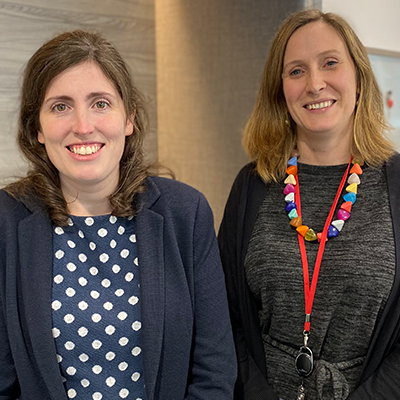Tackling health inequalities: how the government can do things differently to build back better
15 September 2021

Efforts to encourage more collaborative working in government are not new. The Northcote-Trevelyan report on the civil service published in 1854 noted its ‘fragmentary character’, the effect of which was to ‘cramp the energies of the whole body’ and ‘to encourage the growth of narrow views and departmental prejudices’. 160 years on, some might ask whether anything has changed?
While we (Gwen and Katherine) are new to the foundation world, we have 40 years of experience in Whitehall between us. This makes us all too aware of the mixed success of attempts to get different government departments working together to agree, fund and deliver a cross-cutting policy agenda.
We both spent much of our civil service career working on policy agendas that explicitly required action from more than one department, on areas including reducing obesity, tackling drug misuse and supporting the third sector. In our experience, civil servants and ministers do genuinely recognise that social policy issues are neither experienced nor successfully addressed through the artificial boundaries imposed by departmental structures. However, working in a way that reflects this is easier said than done.
This may lead an idealistic civil servant or commentator to be despondent. But we believe that there is now a real moment to be seized to create a different way of working, particularly to tackle health inequalities. The response to the pandemic saw government working in a much more collaborative way to improve outcomes. New governance arrangements emerged, data-sharing improved, there was significant movement of staff around Whitehall and new cross-departmental teams were set up. The new cross-government ministerial board on prevention and the Office for Health Improvement and Disparities provide an opportunity to build on this approach.
This is why the Health Foundation is supporting the Inequalities in Health Alliance’s day of action, calling on the Prime Minister to develop and lead a cross-government strategy to reduce health inequalities. We agree that a concerted effort, through a high-profile strategy with accompanying ambitious targets and evaluation metrics, is essential to ensure recovery from COVID-19 is a turning point for the health of the nation.
Tackling health inequalities has traditionally been seen as the responsibility of the NHS and, within Whitehall, the Department of Health and Social Care. But this narrow view misses the wider focus needed to address the root causes of ill health. More attention must be given to those wider factors – including education and employment opportunities, housing, social networks, where we live and the extent it facilitates exercise, a good diet and social connection.
Stepping back from our Whitehall experience of tackling some of these issues in isolation has highlighted for us how interconnected they are. Improving health will also benefit delivery of the agendas of other departments. To go back to the metaphor in the Northcote-Trevelyan report, the whole body can benefit when a joined-up approach is taken.
There is no quick fix solution to tackling health inequalities but making progress is vital for post-pandemic recovery and levelling up. We hope the government will listen to the Inequalities in Health Alliance’s call and commit to making the most of this unique opportunity created by the establishment of the Office for Health Improvement and Disparities, the momentum behind the levelling up agenda and the coalition of partners ready to support action in this vital area.
Katherine Merrifield and Gwen Nightingale are job-share Assistant Directors in the Healthy Lives team at the Health Foundation.
Further reading
Work with us
We look for talented and passionate individuals as everyone at the Health Foundation has an important role to play.
View current vacanciesThe Q community
Q is an initiative connecting people with improvement expertise across the UK.
Find out more

